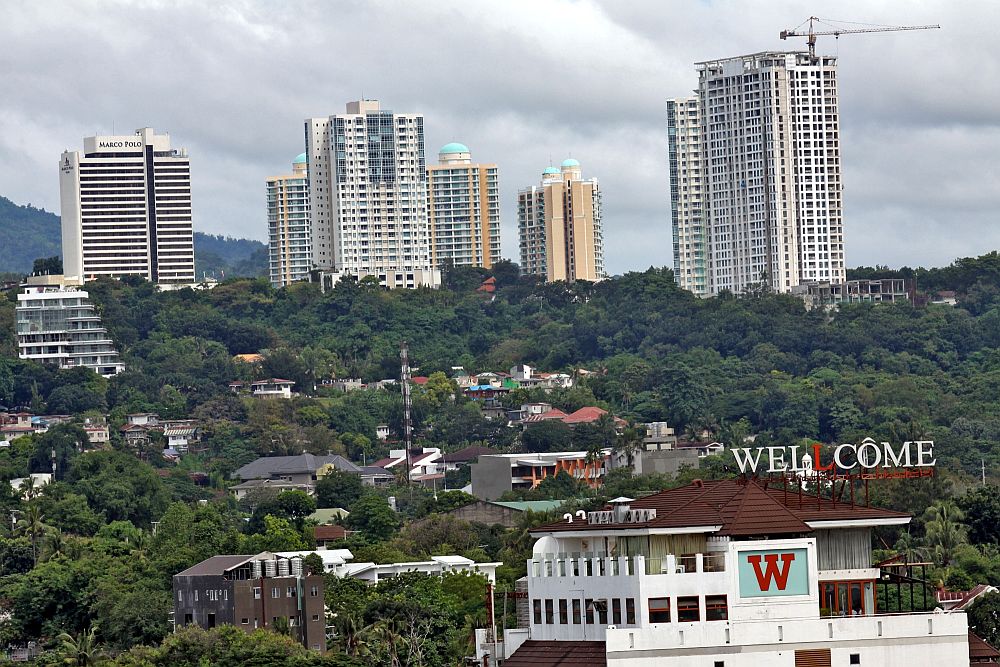PH slips in ease of doing business report

Cebu City (CDN FILE PHOTO)
Biz stakeholders call for reforms
The Philippines’ ranking in ease of doing business slipped to 113th this year from 99th last year across 190 countries covered by an annual World Bank Group report, prompting local stakeholders to call on government to hasten reforms.
Roy Soledad, head of the Cebu Investment and Promotions Office (CIPO), said this was a wake-up call for the national government and even local government units across the country to improve the way they deal with businesses.
“It’s really time to shorten the process, improve systems and procedures by bringing them online, and putting up one-stop shops in towns and municipalities,” he said in a phone interview with Cebu Daily News.
The World Bank’s latest “Doing Business 2018: Reforming to Create Jobs” report released Tuesday showed that the country’s distance to frontier (DTF) improved slightly to 58.74 from 58.32 in the Doing Business 2017 report.
According to World Bank, the DTF measures how far the economies covered by the report were from the best performing economy on each of the indicators. The 2018 report covered reforms in the past year.
World Bank explained that an economy’s DTF is reflected on a scale of zero to 100, where zero represents the lowest performance while 100 represents the frontier.
Despite the improvement, the Philippines’ 2018 DTF was below the average of 62.7 across East Asia and the Pacific economies.
For Gordon Alan Joseph, president of the Cebu Business Club (CBC), this only showed that there has been little, if any, real institutional reform and that should this decline continue, the country’s potential to attract investments will drop even further.
“I wish our government had the institutional will and competence to recognize the need for reform, demand accountability from civil servants and political leaders, and execute reform consistently,” he said.
Joseph added it was sad that all sectors in the country struggle with ease of doing business.
In comparison, Malaysia ranked 24th in the 2018 report with a DTF of 78.43; Thailand with a DTF of 77.44; Vietnam with 67.93; and Indonesia, 66.47.
Across the Association of Southeast Asian Nations (Asean) region, the Philippines was outranked by Singapore (second overall), Malaysia and Thailand tied at 26th, Brunei at 68th, and Indonesia at 72nd. Cambodia placed 135th, Laos 141st and Myanmar 171st.
Canada vs PH
In ease of doing business indicators, the Philippines’ ranked 173rd in starting a business, 101st in dealing with construction permits, 31st in getting electricity, 114th in registering property, 142nd in getting credit, 146th in protecting minority investors, 105th in paying taxes, 99th in trading across borders, 149th in enforcing contracts and 59th in resolving insolvency.
To illustrate how more difficult it was to open a business in the Philippines compared to countries ahead of it, the World Bank used the case of a potential software potential entrepreneur as an example.
The World Bank said that if the entrepreneur were a Canadian national, it would only take just two procedures, one and a half days and less than one percent of income per capita to start her business in Toronto.
First, she would need to file for federal incorporation and provincial registration online via Industry Canada’s Electronic Filing Centre, which costs 200 Canadian dollars ($159) and is completed within a day.
After that, she would need to register online for value added tax, a procedure which costs nothing and is completed within half a day. The entrepreneur can perform these steps online from the comfort of her own home.
As her business grows and becomes profitable, she would be expected to pay 20.9 percent of her commercial profits in taxes and contributions annually.
The World Bank pointed out that if the same businesswoman were a national of the Philippines, living in Quezon City, the business incorporation process would require 16 procedures, take 28 days, and cost around 16 percent of income per capita.
She would need to make 20 different tax and contribution payments and visit multiple agencies in person. Moreover, her business would be expected to pay 42.9 percent of its commercial profits in taxes and contributions every year.
Needed reforms
Nonetheless, the World Bank noted that the Philippines this year introduced reforms to make it easier to secure electricity service as well as pay taxes.
Melanie Ng, president of the Cebu Chamber of Commerce and Industry (CCCI), admitted that there is still a lot to be done for the Philippines to move up in the ease of doing business ranking.
“If real change is not implemented in removing red tape, we will lose out business opportunities to other countries that make it easier for investors to conduct business,” she said in a text message.
The top 10 countries where it is easiest to do business were: New Zealand (DTF score of 86.55); Singapore (84.57); Denmark (84.06); South Korea (83.92); Hong Kong (83.44); the United States (82.54); the United Kingdom (82.22); Norway (82.16); Georgia (82.04); and Sweden (81.27).
Ng said they are looking forward to the implementation of the expanded Anti-Red Tape Act sponsored by Sen. Juan Miguel Zubiri, which she said will help propel the country’s economy toward a better future.
Disclaimer: The comments uploaded on this site do not necessarily represent or reflect the views of management and owner of Cebudailynews. We reserve the right to exclude comments that we deem to be inconsistent with our editorial standards.
